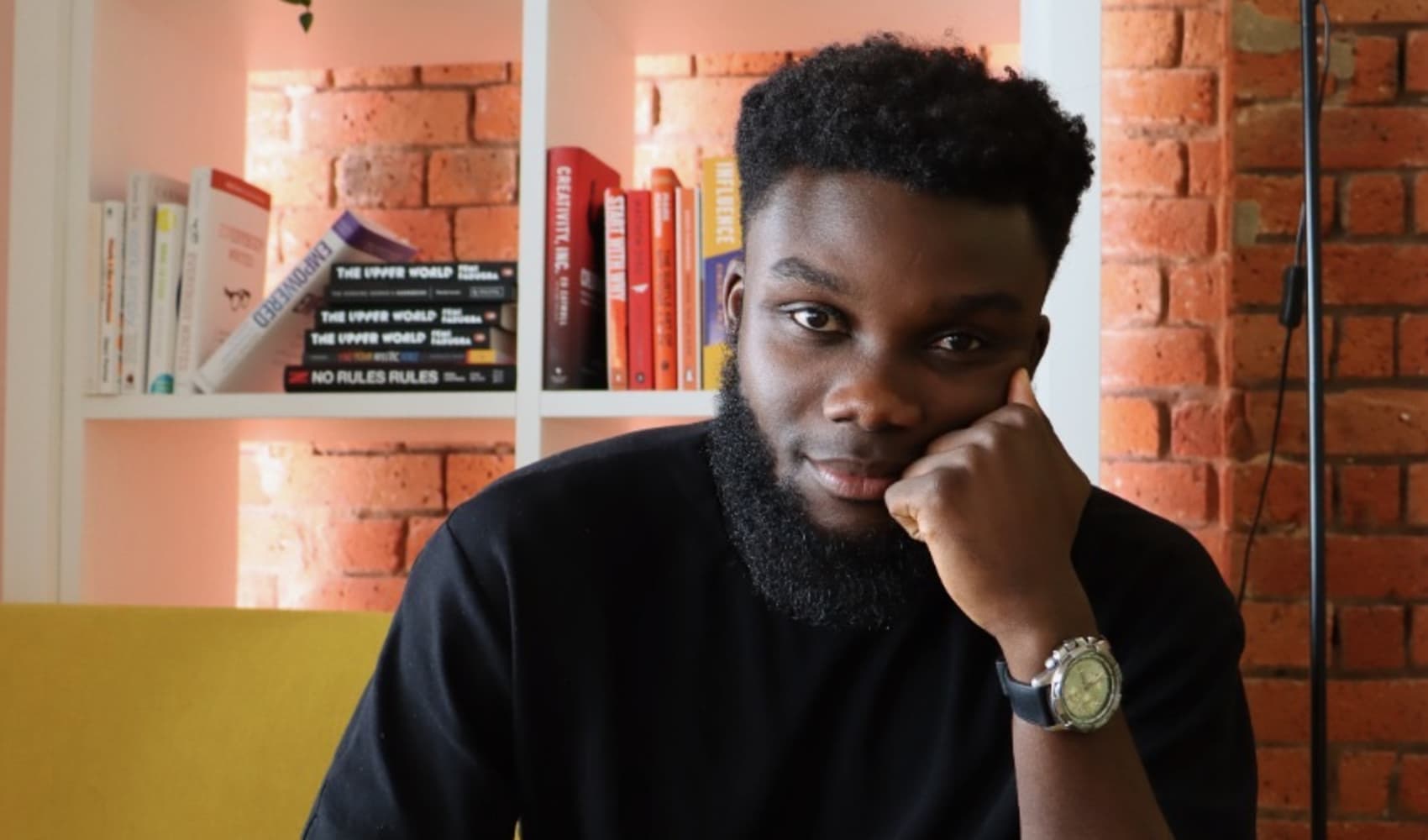
This story is part of CNBC Make It's Ditching the Degree series, where women who have built six-figure careers without a bachelor's degree reveal the secrets of their success. Got a story to tell? Let us know! Email us at AskMakeIt@cnbc.com.
Whenever someone asked Chelsea Norstedt what she wanted to be when she grew up, she didn't have a job title in mind, but a number.
"The biggest goal I had in life was to earn enough to own a car or cover my bills each month — that the lights were always on, and groceries were in the fridge," she tells CNBC Make It. "When you grow up in a low-income household, you don't know what else to dream of beyond that."
Norstedt spent her childhood in Erie, Pennsylvania, a coastal city where the average household income is as low as $12,000 in some neighborhoods.
According to MIT's Living Wage Calculator, Norstedt would need to make at least $40,000 to live comfortably in Erie. As she explored different career paths, she had a similar figure in mind.
Now 32, Norstedt's income exceeds her teenage aspirations, even after making the difficult decision to leave college and not finish her bachelor's degree, a move Norstedt feared would decimate her earning potential.
College graduates on average earn more than those without a four-year degree — but this so-called college wage premium is shrinking.
Get Tri-state area news delivered to your inbox. Sign up for NBC New York's News Headlines newsletter.
The San Francisco Federal Reserve found that the college wage gap peaked in the mid-2010s but declined by four percentage points in 2022. Now, bachelor's degree holders earn about 75% more over their career than those without.
Money Report
Norstedt earns close to $150,000 working as a senior account manager at Huntress, a cybersecurity startup. She works remotely from Miami, Florida.
Here's how Norstedt broke into tech and started earning six figures without a bachelor's degree:
Starting out at $45,000
Norstedt left Penn State University in 2014 just two semesters shy of finishing her bachelor's degree in criminology.
She moved back to her childhood home in Erie to support her mother, Beth, who was struggling with health issues at the time.
Norstedt's mother died of a drug overdose in 2016, but when she was alive "she gave me the confidence and drive to work hard and find my way in the world," Norstedt says of her mother.
Norstedt worked as a bartender and server at different restaurants around town, "wherever would hire me," she recalls.
At the same time, Norstedt monitored listings on job sites like LinkedIn and Indeed for any higher-paying office roles that did not explicitly require a college degree. She planned to go back to Penn State the following academic year and wanted to save as much money for her return as she could.
A friend recommended she apply for a job at Verizon, as the organization had started getting rid of such requirements for different entry-level and customer service roles.
Norstedt landed her first job as an experience specialist at a Verizon store in Altoona, Pennsylvania in January 2015. The job paid about $45,000 a year. "I felt like I was rich," she says.
How mentors and on-the-job training propelled her career forward
From that first job, Norstedt's career took off quickly. She was promoted three times at Verizon within four years, holding different roles in customer service, sales operations and people development.
By the time she turned 24, Norstedt says she was earning about $100,000 a year — and the return on investment of finishing her degree was shrinking.
"I would've had to take out additional loans and likely go into debt to graduate college," she says. "And I already had a job that I loved and paid well, so it didn't feel wholly necessary."
Norstedt credits her fast ascent up the corporate ladder to the supportive managers and free training programs she encountered at Verizon.
"I was able to take courses in public speaking, solution selling and managing different software programs," she says. "Whenever I wanted to learn a new skill or struggled on a project, my managers connected me with someone else on staff who could teach me."
Norstedt left Verizon in 2019 — but working there "opened a lot of doors for me in my career," she adds.
A job that 'makes a small difference in this crazy world'
In 2020, Norstedt was recruited to work for a small software development firm based in Miami. She moved from Pennsylvania to Florida in February 2021.
That job introduced Norstedt to the cybersecurity field and led her to Huntress, where she started working in April 2024. Norstedt is a senior account manager at Huntress, supporting small businesses that use Huntress's cybersecurity software and products to protect them from threats.
"It's an incredibly gratifying field to work in," she says. "I feel like I can make a small difference in this crazy world by keeping people's information safe online."
Standing out, sans degree
Most cybersecurity jobs require at least a high school diploma or GED, as well as the completion of an online boot camp or training.
As the threat of cyberattacks grows, so does the demand for professionals who can address them. To meet this escalating need, more employers, including Google and IBM, are dropping the degree requirements for cybersecurity jobs.
"Skipping college doesn't disqualify you from a career in cybersecurity," says Norstedt. "Completing a bachelor's or master's degree is a wonderful accomplishment, but your portfolio and experience can also go a long way in helping you stand out."
Sometimes, Norstedt thinks about going back to college and finishing her bachelor's degree.
However, her undergraduate course credits recently expired, so she would have to start her bachelor's degree from scratch — an intimidating feat after a decade away from academia.
Plus, she's "ridiculously happy" at Huntress.
"I work with smart, kind people and I feel financially secure," says Norstedt. "I don't have this fear of missing out on other opportunities just because I don't have a college degree."
Want to stop worrying about money? Sign up for CNBC's new online course Achieve Financial Wellness: Be Happier, Wealthier & More Financially Secure. We'll teach you the psychology of money, how to manage stress and create healthy habits, and simple ways to boost your savings, get out of debt and invest for the future. Start today and use code EARLYBIRD for an introductory discount of 30% off through September 2, 2024.
Plus, sign up for CNBC Make It's newsletter to get tips and tricks for success at work, with money and in life.






